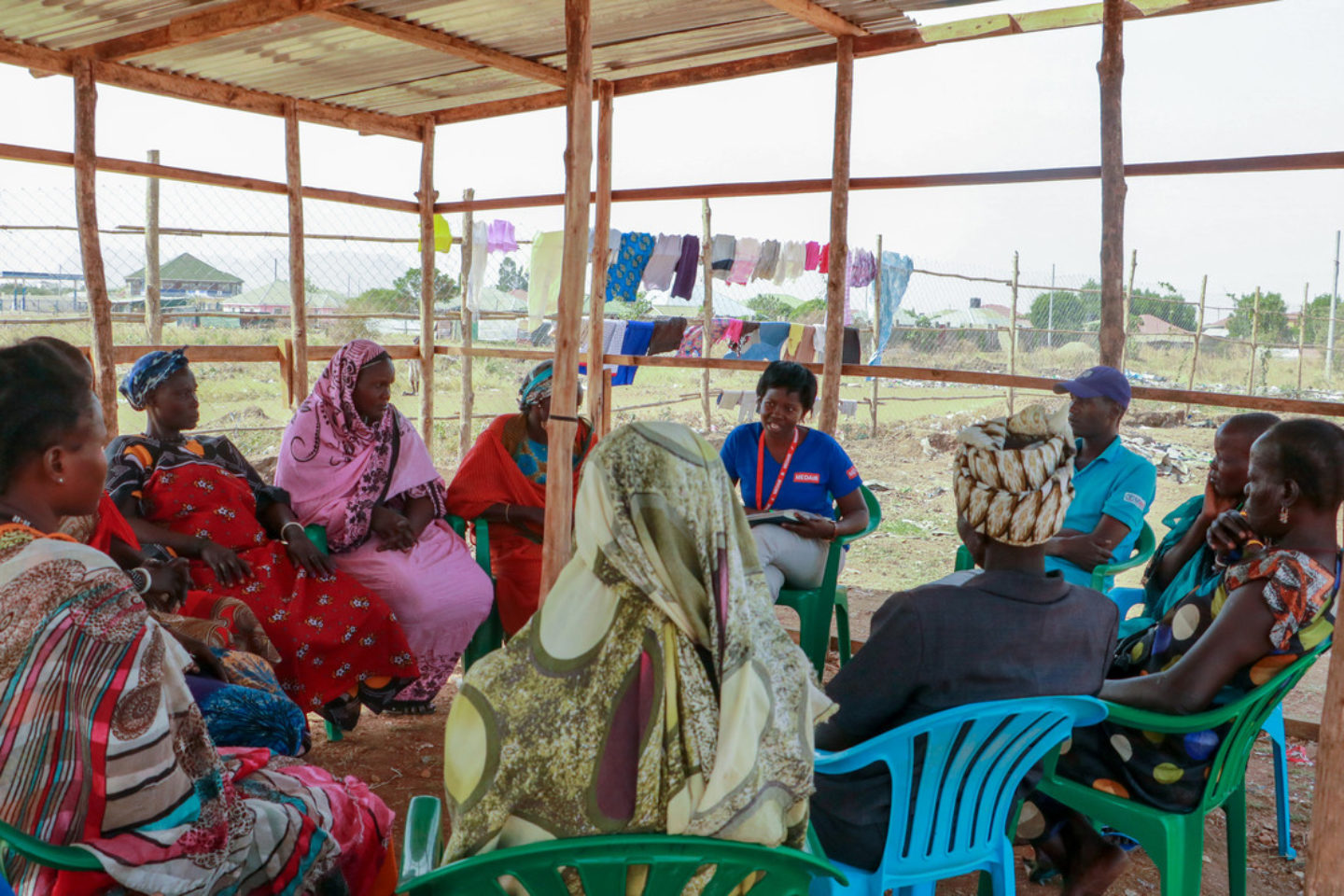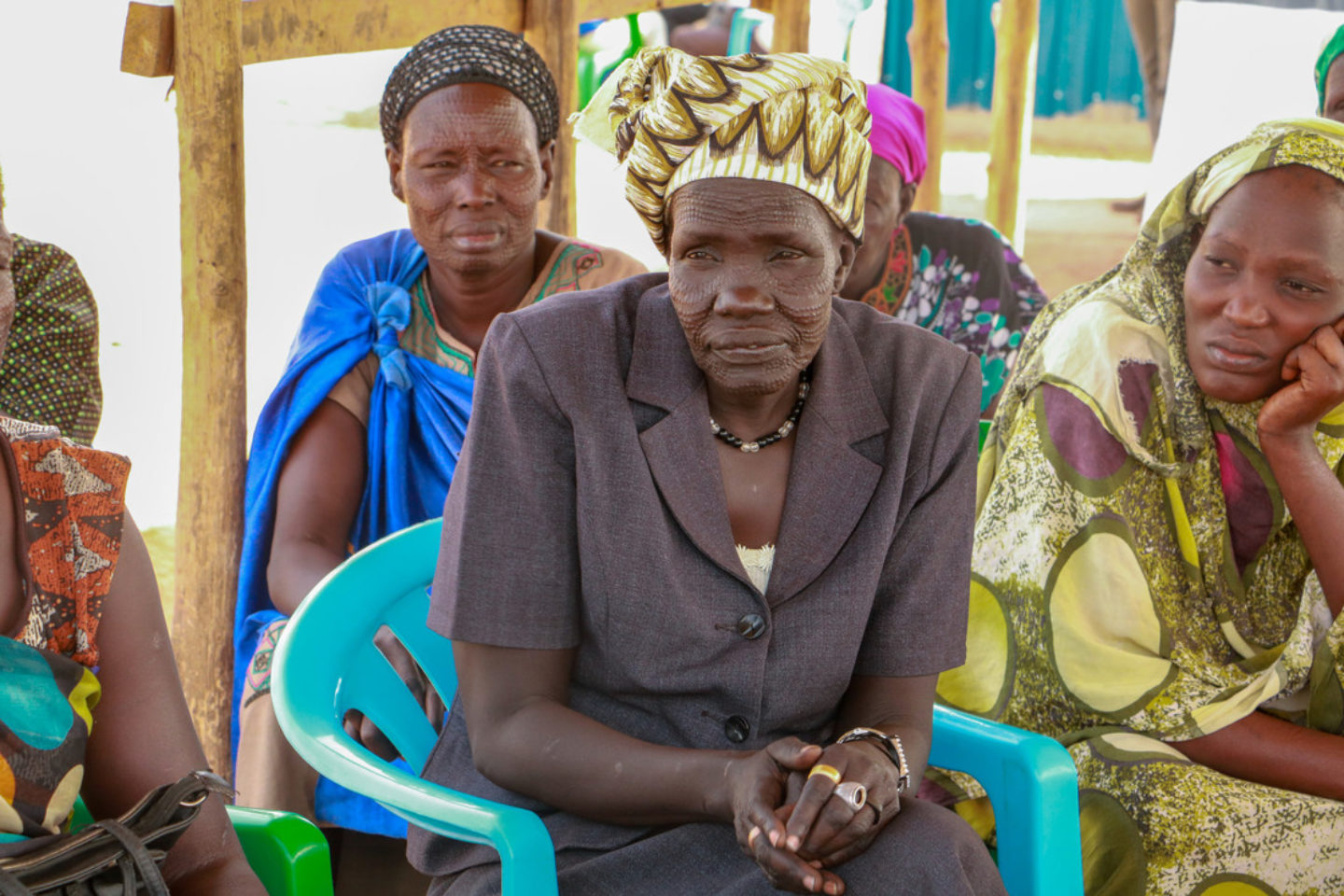Stories from South Sudan
We are the same, my sister.
An encounter between two women in South Sudan
Tap tap tap. Giggle.
Tiny, dirty hands reach from behind me, touching the tattoo on my wrist as I try to keep up with our team walking through the Mangateen Camp. As always, I’m falling behind; swivelling my head and snapping photos at every turn. When I look to see where the tapping is coming from, the giggles become squeals and bare feet kick up puffs of dust as the children run away. I’m the only foreigner in sight today; let’s just say I stand out a bit and I understand being somewhat of a curiosity.
This is my first field visit since joining the team in Juba, South Sudan; my third country assignment since starting work in humanitarian aid in 2016. Compared to the helicopter-flying, swamp-wading, canoe-paddling visits that I’ve heard are the norm here, the 15-minute drive from our main base barely qualifies as a ‘field visit’, but I jumped at the chance to join. Today we are holding focus group discussions to ask a community whether they would prefer receiving household items distributed at the camp, or to get a voucher for choosing the items in a market.
The people we are meeting were moved to this informal camp in August 2018. Nearly 1,500 were relocated following conflict between tribal groups at a large protection centre in the north of the country. These new arrivals are now living in a dark, wide open, cavernous warehouse.

We will have two discussions today. A group of women will meet with my female colleague, and the male team members will talk to the men. Fourteen women sit in the shade on plastic chairs, with a young man from the camp who translates between the Nuer language and English.
What strikes me first are the traditional tribal marks of the women. Although I have read about the scarification ceremonies, these ladies are the first I’ve met bearing the patterned dots and lines on their faces. Generally quite tall with long limbs, there is an almost regal bearing about the women. I’m immediately torn between wanting to capture their beauty with photographs, and putting my camera away to just sit with them and learn where that dignity comes from.

As the conversation about the distribution unfolds, the women grow more at ease with us as strangers. My colleague, who is from South Sudan herself, leaves room for answers to be given in the form of short stories, as is the culture. I move around the circle, taking photos from different angles to capture the women as they interact and engage with one another while providing feedback. Finally I get the courage to ask someone if I can take her picture individually. I point to my camera and then back to her and say ‘Okay?’. She nods and sets her face in a serious look.
By the time the official discussion is over I’ve taken dozens of portraits and shared some precious laughs with the women. I ask a few questions about life before the conflict. I’m told of being able to cultivate when the rains come. Of having so many fruit trees you could live off the forest. Of rivers filled with so many fish.
Suddenly a woman named Mary points to me. Through the translator she says she has a question for me. I feel nervous. She extends her long arm and graceful hand; pointing directly at my chest. Her eyes speak volumes. Grace. Hope. Confidence.
“You and I are the same, my sister. The difference is that you have education and I am in need.”
I feel a lump in my throat and the tears prickle behind my eyes.
“I trust you because you brought a woman to talk to us today. A woman cannot hear the troubles of another woman without doing something; doing what she can. Because of this I trust you.”
I nod my head; speechless.
This. I came for this. This privilege of being considered an equal by a woman who has the strength to have hope in South Sudan. Who has the strength to welcome yet another foreigner asking personal questions, despite so many strangers having asked about her needs and who, for some reason, were unable to help.
I came to learn – again – how we are all the same; even those of us who have tattoos or facial markings, or different ideas of beauty. Of family. Of love. I came for the push and pull in my heart; to confront my own understanding and to stretch the limits of my compassion.
Do what you can today to bear the troubles of women in crisis around the world.
